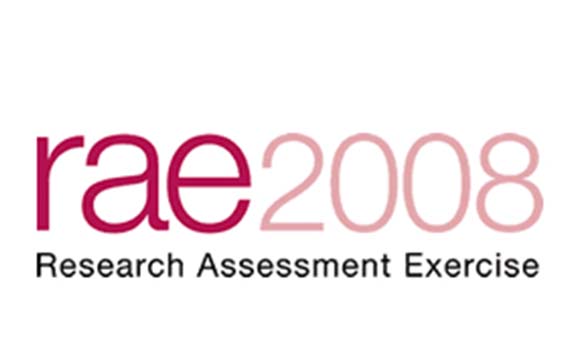Research Excellence Framework
RESEARCH EXCELLENCE FRAMEWORK (REF) 2021
The Research Excellence Framework (REF) is the system for assessing the quality of research in UK higher education institutions. Taking place roughly every six or seven years, the results are used to provide information about the quality of a university's research for external benchmarking and the allocation of research funding.
The REF is undertaken by the four UK higher education funding bodies: Research England, the Scottish Funding Council (SFC), the Higher Education Funding Council for Wales (HEFCW), and the Department for the Economy, Northern Ireland (DfE).
The funding bodies’ shared policy aim for research assessment is to secure the continuation of a world-class, dynamic and responsive research base across the full academic spectrum within UK higher education.
REF 2021 - COVID-19
The UK REF Team published an update in relation to contingency planning for Coronavirus for the Research Excellence Framework (REF 2021). The submission deadline of 27 November 2020 has been postponed and a new submission deadline will be announced no later than eight months prior to the deadline. The REF Staff Census date (31 July 2020) remains unchanged.
For the latest updates from the UK REF Team, please visit their website page.
Preparing for REF 2021 at QMU
QMU has appointed a REF Strategy Group, chaired by the Deputy Principal, to oversee its submission to REF 2021.
A series of QMU REF 2021 Staff Briefing events will take place over the academic year to update staff on REF 2021 at QMU, the implementation of the REF 2021 Code of Practice and to offer an opportunity for Q and As.
REF 2021 Code of Practice
QMU acknowledges its obligations to comply with equality legislation. We are committed to supporting and promoting equality in research, and to transparency and fairness in decisions concerning the representation of the excellent work of all staff. In our REF 2021 Code of Practice, we set out our processes on:
- The fair and transparent identification of staff with Significant Responsibility for Research (SRR).
- Determining who is an Independent Researcher.
- The selection of outputs.
The REF 2021 Code of Practice will be implemented in line with the following guidance produced by the four UK Higher Education Funding Bodies and available on their REF 2021 website:
REF 2021 (2019) Guidance on Submissions.
REF 2021 (2019) Panel Criteria and Working Methods.
REF 2021 (2019) Guidance on Codes of Practice.
The REF 2021 Code of Practice will ensure that our procedures and processes for REF 2021 do not discriminate unlawfully against, or otherwise have the effect of harassing or victimising individuals because of age, disability, faith/belief, gender identity, marriage/civil partnership, pregnancy and maternity, race, sex and sexual orientation.
Download a copy of our REF 2021 Code of Practice. Hard copies are available from the REF2021Project@qmu.ac.uk.
You can also contact REF 2021 Project for any questions about our Code of Practice.
REF 2021 Timetable
- 1 Jan 2014 to 31 Dec 2020: Publication period
- 1 Aug 2013 to 31 July 2020: Assessment period for impact(s)
- 31 July 2020: Census date for staff in post
- 27 November 2020: Closing Date for Submissions
- 2021: Assessment by panels
REF 2021 Units of Assessment (UoAs)
The REF is a process of expert review. Institutions are invited to make submissions in 34 units of assessment (UOAs). The submissions are assessed by an expert sub-panel for each UOA, working under the guidance of four main panels.
The members of the REF panels are appointed by the four UK funding bodies. See detailed information on the roles and recruitment of panels.
Main panels
The main panels oversee the assessment, ensuring the assessment criteria and standards are consistently applied. They are responsible for signing-off the results recommended by the sub-panels. The main panels include international members to provide assurance about the international benchmarking of standards.
How is it Assessed?
The sub-panels will assess the submitted work, with the overall quality profiles comprising three sub-profile areas:
- Research outputs - 60% of the overall quality profile
- Impact - 25%
- Environment - 15%
The overall quality profile as well as each sub-profile will be based on a 5-point scale (1*-4* and Unclassified).
Institutional Statement on the Use of Metrics in Research Assessment
The University will apply fair and transparent mechanisms in the use of research metrics for the selection of outputs for REF 2021 as outlined in our Institutional Statement on the Use of Metrics in Research Assessment. This process will be supported by a programme of staff training.
This statement is a guide to responsible research assessment. It provides a set of principles outlining good practice. These principles reinforce the key role of peer review and support an inclusive and transparent process to research assessment, respectful of researchers and of the plurality of research.
It outlines QMU’s commitment to:
(1) Becoming a signatory to the San Francisco Declaration on Research Assessment (DORA) to underpin its commitment to the responsible use of research metrics. Read the San Fransisco declaration.
(2) Adopting the principles of the Leiden Manifesto.
(3) Implementing the recommendations of the Forum for Responsible Research Metrics (FFRM) and the principles of the Metric Tide Report.




